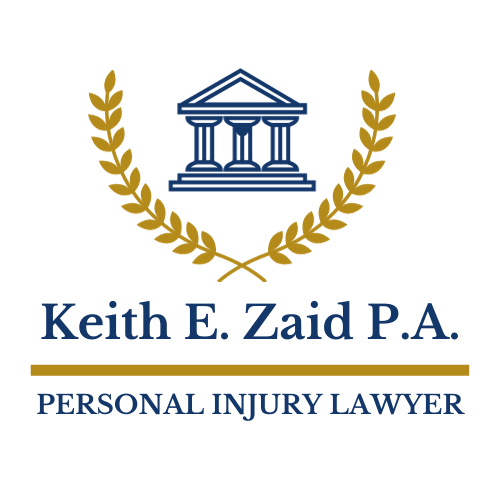What is My Personal Injury Case Worth?
Calculating damages in personal injury cases in New Jersey is a complex process that involves assessing various types of losses and expenses incurred by the injured party. Understanding the intricacies of these calculations is essential for anyone pursuing a personal injury claim in the Garden State. In this comprehensive guide, we will explore the types of damages, factors that influence them, how to prove damages, and the role of a personal injury lawyer in maximizing compensation.
Understanding Types of Damages in New Jersey
Before delving into the calculations, it’s crucial to understand the types of damages that may be sought in personal injury cases in New Jersey. Damages can be categorized into two main groups: economic and non-economic.
Economic Damages in New Jersey
Medical Expenses
One of the primary components of economic damages in New Jersey personal injury cases is medical expenses. These expenses encompass a wide range of healthcare costs, including doctor visits, hospital stays, surgeries, prescription medications, rehabilitation, and therapy. Calculating medical expenses requires meticulous record-keeping and the collection of all relevant bills and invoices.
Lost Wages and Income
When an injury in New Jersey prevents you from working or earning income, the resulting financial losses are considered economic damages. This includes not only the wages you have already lost but also any future income you may miss out on due to ongoing medical treatment or disability. Calculating lost wages and income involves assessing your pre-injury earnings and determining the potential impact on your future earnings.
Property Damage
In cases involving damage to personal property, such as vehicles in New Jersey, property damage is a component of economic damages. This includes the cost of repairing or replacing damaged items. The calculation should consider repair estimates, depreciation, and any rental expenses incurred while your property is being repaired.
Cost of Future Medical Care in New Jersey
For injuries that require ongoing medical treatment or future procedures in New Jersey, calculating the cost of future medical care is essential. This involves consulting with medical experts who can provide estimates for the necessary medical interventions and therapies. Accurately assessing these future costs is critical for ensuring that you receive adequate compensation to cover your long-term healthcare needs.
Non-Economic Damages in New Jersey
Pain and Suffering
In New Jersey, pain and suffering damages compensate the injured party for the physical and emotional distress resulting from the injury. Calculating these damages is inherently subjective, as they address intangible losses. Factors such as the severity of the injury, the duration of pain and suffering, and the impact on the plaintiff’s quality of life are taken into account.
Emotional Distress and Mental Anguish
Emotional distress and mental anguish damages in New Jersey address the psychological toll of the injury. This may include anxiety, depression, post-traumatic stress disorder (PTSD), and other emotional struggles. Proving these damages often requires expert testimony from mental health professionals and a compelling narrative that demonstrates the emotional impact of the injury.
Loss of Consortium in New Jersey
Loss of consortium damages in New Jersey apply when an injury significantly impairs the injured person’s relationship with their spouse or family members. These damages compensate the affected family members for the loss of companionship, support, and love. Calculating loss of consortium damages requires a careful assessment of the impact on family dynamics and relationships.
Punitive Damages in New Jersey
In exceptional cases involving intentional misconduct or gross negligence in New Jersey, punitive damages may be awarded to punish the at-fault party. These damages go beyond compensating the injured party and serve as a deterrent against egregious behavior. Calculating punitive damages involves assessing the defendant’s conduct and presenting evidence of willful or reckless actions.
Factors That Influence Damages in New Jersey
Several factors can influence the calculation of damages in personal injury cases in New Jersey. Understanding these factors is crucial for accurately estimating the compensation you may be entitled to.
Comparative Negligence in New Jersey
New Jersey follows a comparative negligence system, which means that the amount of compensation you receive can be affected by your level of fault in the accident. If you are found partially responsible for the accident, your damages may be reduced accordingly. Calculating damages in cases involving comparative negligence requires a careful assessment of each party’s degree of fault.
Impact of Insurance Policies in New Jersey
The availability and limits of compensation can be significantly influenced by insurance policies held by the parties involved. In New Jersey, mandatory insurance requirements for auto accidents and various liability policies may come into play. Understanding the insurance landscape is essential for ensuring that you receive the maximum compensation available.
Proving Damages in New Jersey
Proving damages in New Jersey requires thorough documentation and compelling evidence. The strength of your case hinges on your ability to demonstrate the extent of your losses.
Documentation of Economic Damages
Thoroughly documenting economic damages is essential in New Jersey. This involves collecting all medical bills, invoices, and receipts related to your treatment and expenses. It’s crucial to maintain a comprehensive record of all costs incurred as a result of the injury, including transportation costs to medical appointments.
Establishing Non-Economic Damages
Proving non-economic damages like pain and suffering and emotional distress often involves expert testimony. Mental health professionals, medical experts, and other qualified witnesses can provide valuable insight into the emotional and psychological impact of the injury. Additionally, presenting a compelling narrative of your suffering can strengthen your claim.
Calculating Damages for Specific Types of Cases in New Jersey
The calculation of damages can vary depending on the type of personal injury case in New Jersey. Here are some considerations for specific scenarios:
Car Accidents
Car accident cases in New Jersey often involve complex calculations. In addition to medical expenses and lost income, property damage and the potential for future medical care must be assessed. Consultation with accident reconstruction experts may be necessary to determine liability and the extent of damages.
Slip and Fall Incidents
In slip and fall cases in New Jersey, damages typically revolve around medical expenses, lost income, and pain and suffering. Property owner liability and negligence must be established to support your claim.
Medical Malpractice
Calculating damages in medical malpractice cases in New Jersey requires a meticulous review of medical records, expert testimony, and an evaluation of the long-term consequences of medical errors. These cases often involve substantial economic damages for ongoing medical care and non-economic damages for pain, suffering, and emotional distress.
Negotiating Damages in New Jersey
Negotiating damages with insurance companies or the at-fault party in New Jersey demands a strategic approach and effective communication. A personal injury lawyer can play a crucial role in this process.
The Role of a Personal Injury Lawyer in New Jersey
Benefits of Legal Representation
Engaging the services of a skilled personal injury lawyer in New Jersey can significantly enhance your ability to calculate and negotiate damages effectively. An experienced attorney can assess your case, evaluate the full extent of your damages, and guide you through the complex legal processes.
Assessing the Full Extent of Damages
Personal injury lawyers in New Jersey have the experience to assess the full extent of your damages. They work diligently to ensure that no potential compensation is overlooked. This includes considering not only your current losses but also future expenses and the intangible impact of the injury on your life.
Conclusion: Maximizing Compensation in New Jersey Personal Injury
Cases
Frequently Asked Questions About Calculating Damages in New Jersey Personal Injury Cases
Here are answers to common questions related to calculating damages in personal injury cases in New Jersey, offering insights to help you navigate the process:
1. How much does it cost to hire a personal injury lawyer in New Jersey?
Most personal injury lawyers in New Jersey work on a contingency fee basis. This means they only get paid if you win your case. Their fee is typically a percentage of the final settlement or court award. It’s important to discuss the fee structure with your attorney before hiring them.
2. How long do I have to file a personal injury lawsuit in New Jersey?
In New Jersey, the statute of limitations for personal injury cases is generally two years from the date of the injury. However, some exceptions may apply, so it’s essential to consult with an attorney promptly to ensure you meet the filing deadlines.
3. What if I can’t afford to pay for medical treatment after my injury in New Jersey?
If you can’t afford medical treatment after an injury in New Jersey, a personal injury lawyer can help you explore options such as medical liens or accessing your own insurance coverage. They can also work to secure compensation in your case that includes medical expenses.
4. Will I have to go to court if I hire a personal injury lawyer in New Jersey?
Not necessarily. While some cases do go to court, many are resolved through negotiations and settlements. Your lawyer will strive to achieve the best outcome for you, whether through negotiation or litigation, depending on the circumstances.
5. Can I switch lawyers if I’m not satisfied with my current representation in New Jersey?
Yes, you have the right to switch lawyers in New Jersey if you’re not satisfied with your current representation. However, it’s advisable to discuss your concerns with your current attorney first and attempt to address any issues before making a change.
Seeking legal representation from a qualified personal injury lawyer in New Jersey can make a significant difference in the outcome of your case. By recognizing the types of damages, the factors that influence them, and the role of a lawyer, you can navigate the complex process of calculating damages and work toward obtaining the compensation you deserve for your injuries and losses in the Garden State.


